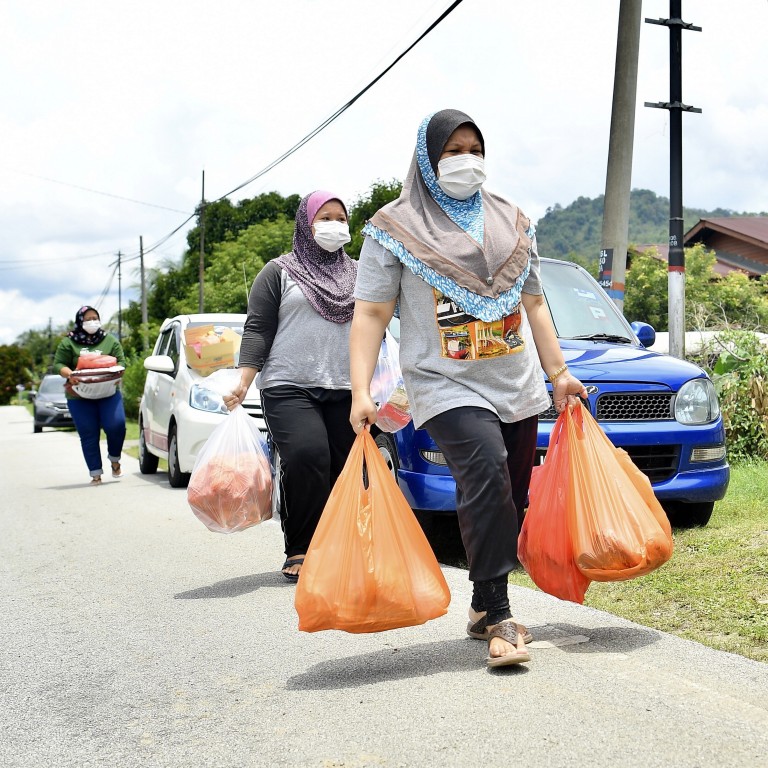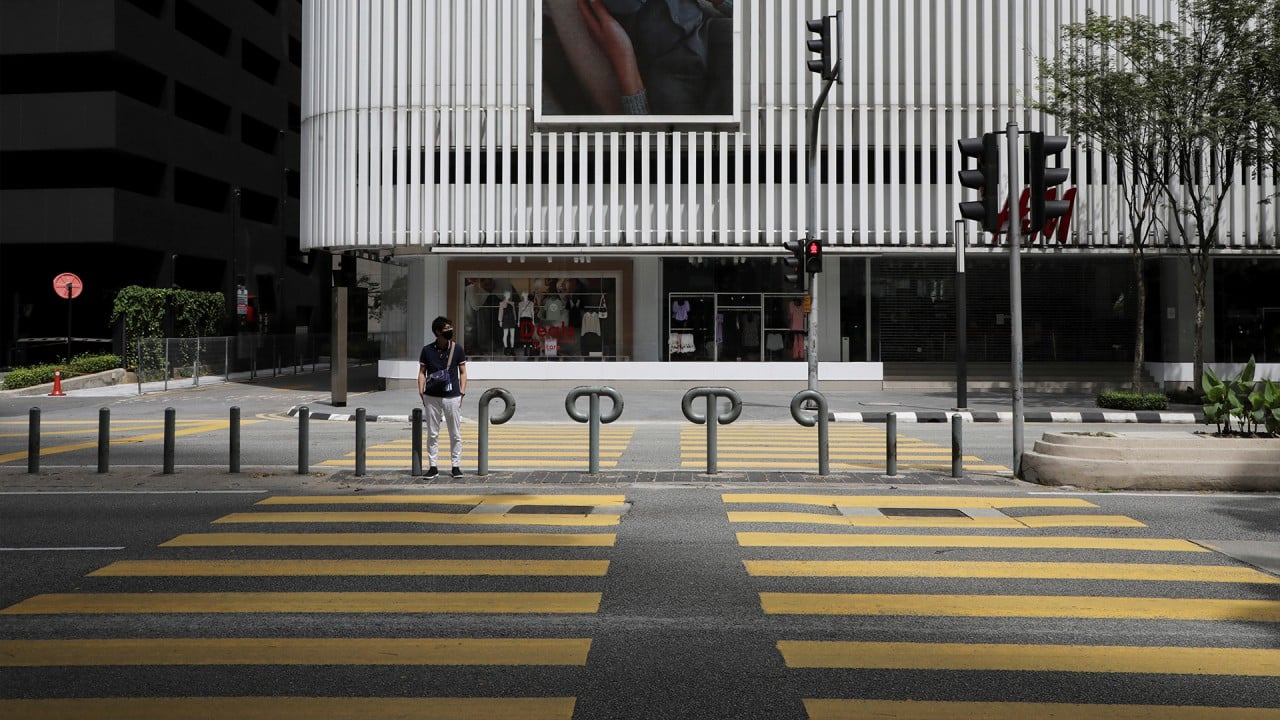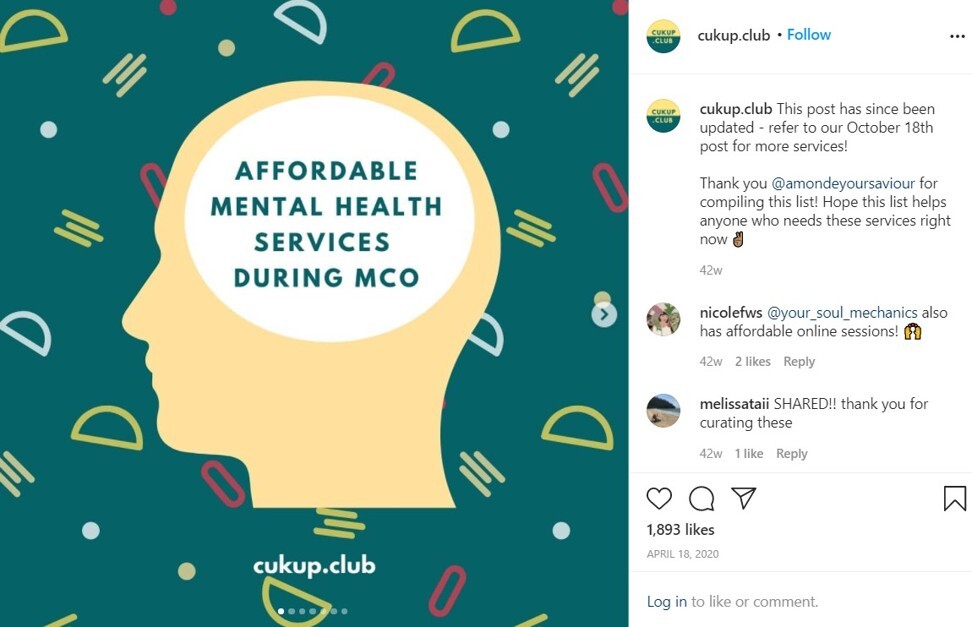
Coronavirus Malaysia: mental health issues surge, but where is government’s response?
- Although one woman is making an effort to provide mental health resources via her Instagram page, the country’s strategy on the issue is said to be lacking
- Many of the suicides reported in Malaysia last year were brought on by pressures related to debt, followed by family problems and marital issues
“We went into the first movement control order in March 2020 under the assumption that it was only for two weeks, but people were anxious and unsure because of this whole unknown element of the coronavirus,” the 27-year-old Roshinee said of the full lockdown.
The lockdown, which saw a ban on travel, gatherings and economic activity, ended up lasting three months. It was subsequently relaxed to a “recovery movement control order” of less strict limitations – until January 2021, when cases started to skyrocket and a second lockdown was put in place.
Like in many other countries, the Covid-19 pandemic has seen mental health issues climb in Malaysia. In November, police reported that 266 people had committed suicide during the various forms of lockdowns from March 19 through October 30.
According to news reports, 25 per cent of the suicides were brought on by pressures related to debt, followed by family problems and marital issues.
In a study conducted by the Malaysian centrist think tank The Centre, many people reported worsening mental health brought on by their living conditions, such as living alone.
“Many were most concerned about the health and safety of their loved ones,” said policy researcher Aziff Azuddin. “When asked about their post-lockdown financial concerns, not being able to afford medical emergencies, not being able to support one’s dependents, and the possible inability to repay their loans were on top of the list.”
Compounding the issue is Malaysia’s poor ratio of mental health professionals to population, which is still well below the recommended World Health Organization ratio of one psychiatrist and one psychologist for every 100,000 people.
Malaysia’s Muhyiddin taking flak again over Covid-19 double standards
According to statistics from the Health Ministry, Malaysia has 0.5 psychiatrists and 0.21 clinical psychologists for every 100,000 people.
Although the government has moved towards offering mental health support in the form of hotlines, more targeted approaches are required, say public health policy experts.
“During this pandemic, women, students, part-time workers and poor communities were those most affected,” Aziff said. “Their mental health difficulties are rooted in issues related to finances, employment, loneliness, family and the like. Policies that address their material conditions – such as employment and living conditions – need to be supplemented by mental health support.”
Public anger at the Perikatan Nasional government has also played a role in heightened tensions, as pushback over perceived policy inconsistencies and economic woes increase.

02:51
State of emergency in Malaysia as country fights third wave of Covid-19 with fresh lockdown
Recently, Senator Razali Idris – who chairs the Senate’s People’s Well-being Caucus Committee – claimed that “unpatriotic” criticism of the government on social media was “the number one mental illness” in Malaysia.
“Is it just me or is the government of the day driving us crazy?”, tweeted one Malaysian in response, while another said “The last time I checked, my psychiatrist didn’t ask me ‘Do you attack the government on Twitter?’ to identify my level of anxiety”.
Nazihah Noor, a research associate at the Khazanah Research Institute, said Malaysia’s mental health crisis was tinged by gender.
“Even before the pandemic … women reported higher prevalence of depression and anxiety than men,” she said. “With the pandemic, different segments of the population are facing different types and levels of additional psychological distress, with the experience often being worse for communities that were already vulnerable even prior to the pandemic.”
Malaysian-Chinese see red over Lunar New Year reunion dinner policy flip-flop
Unfortunately, Nazihah said, it remains difficult to pinpoint exactly what specific, and scientifically proven, measures could be taken to improve the situation.
“The main, long-term approach is to address the chronic underinvesting in our mental health care workforce and delivery to ensure uninterrupted care for those experiencing mental health conditions,” she said.
“We must also make more efforts to monitor the mental health status of the Malaysian population more regularly, especially in the midst of the pandemic, so we can be more responsive in addressing this rising burden.”
If you are having suicidal thoughts, or you know someone who is, help is available. For Hong Kong, dial +852 2896 0000 for The Samaritans or +852 2382 0000 for Suicide Prevention Services. In the US, call The National Suicide Prevention Lifeline on +1 800 273 8255. For a list of other nations’ helplines, see this page.


